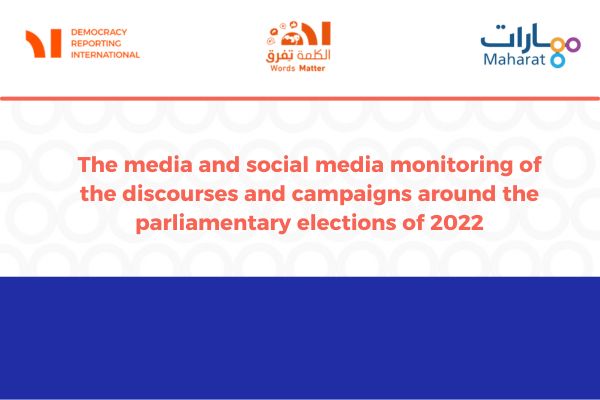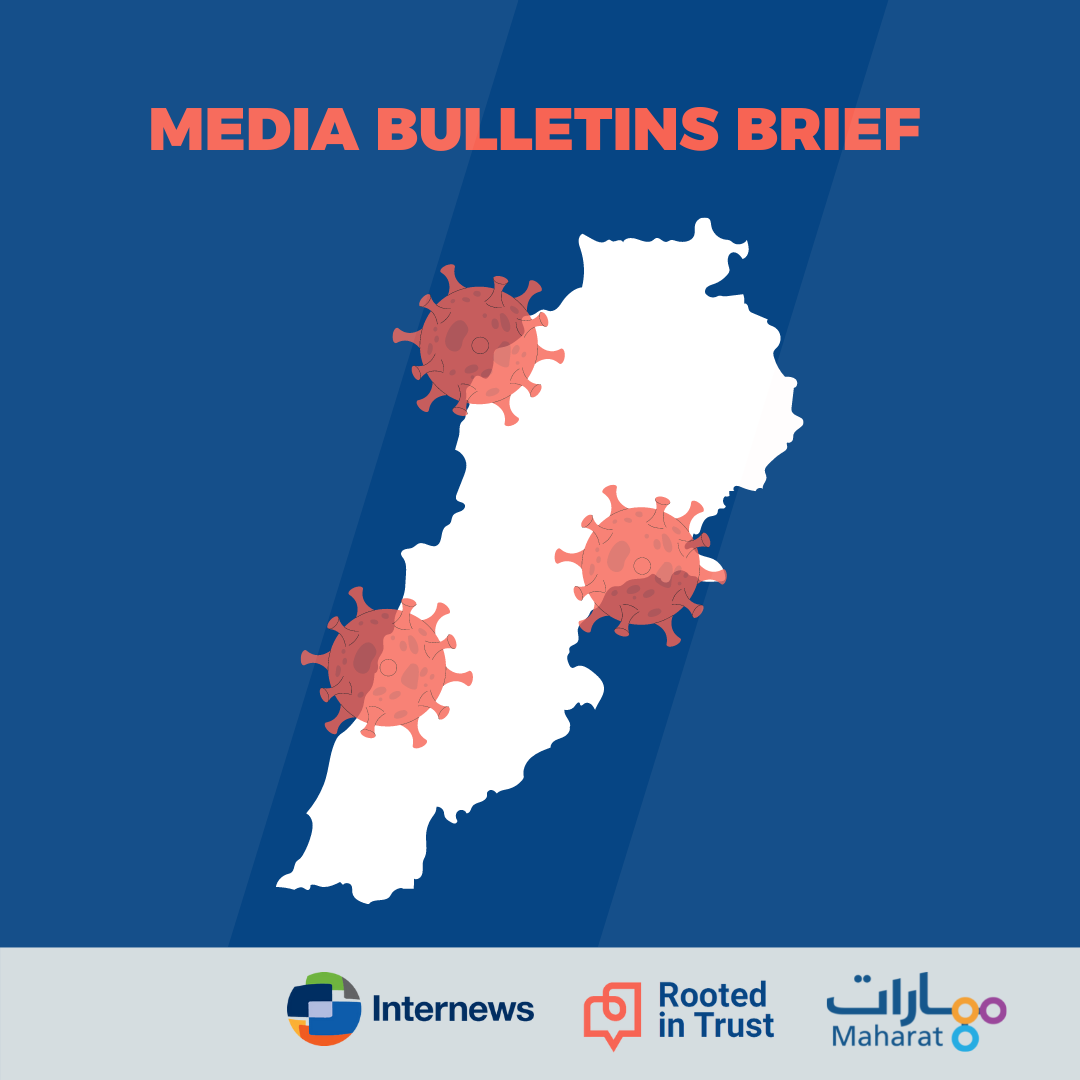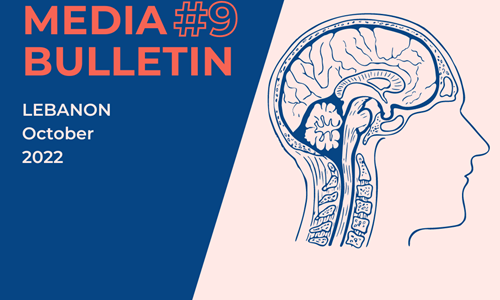
The result of the media and social media monitoring of the discourses and campaigns around the parliamentary elections 2022
This series of position papers is the result of the media and social media monitoring of the discourses and campaigns around the parliamentary elections of 2022 that took place on May 15, conducted by Maharat Foundation with the support of the Democracy Reporting Institute (DRI). As part of the monitoring process, Maharat Foundation tracked and examined misleading discourses, manipulation campaigns, political propaganda and hate speech on Facebook and Twitter.
Misleading political discourse and manipulation campaigns
This paper examines how the political discourses and manipulation campaigns contributed to misleading the public opinion during the parliamentary elections 2022. Indeed, during the months of February and March 2022, discourses of political actors including candidates, politicians and influencers contained an important share of information aiming at misleading the public through the promotion of conspiracy theories as well as unfounded accusations, although they were expected to build their discourse on facts and evidence. Similarly, between the 1st of April 2022 and the 15th of May 2022, 42 of the Facebook pages and groups which were analyzed in the framework of the media monitoring contributed to the spread of rumors, as 79 rumors and six pieces of false news contributed to the spread of rumors. With regards to the post-electoral period, it was marked by the spread of rumors regarding the results of the parliamentary elections, especially information related to allegations of fraud that questioned the integrity of the electoral process.
The use of political propaganda
This paper explores how political actors and electronic armies used political propaganda to influence voters and affect public opinion during the parliamentary elections 2022. The analysis of the monitoring data on the activities of candidates and politicians on Twitter and Facebook between the months of February and March 2022 revealed that more than 80% of their political discourse took the form of political propaganda and promotional speech principally aiming at arousing negative feelings and throwing accusations at political opponents. During the period ranging from 1 April 2022 to 15 May 2022, the share of the posts related to the political discourse of candidates and politicians involving political propaganda based on emotional speech was 49.5%, with electoral advertising coming in second at 21.3%. During the post-electoral period, “electronic armies” of traditional parties spread political propaganda targeting Change forces MPs in an effort to discredit and defame them.
Hate speech discourses
This paper briefs how the political actors and electronic armies contributed to the spread of hate speech during the parliamentary elections of 2022. In fact, during the period ranging from 1 April 2022 to 15 May 2022, according to the media monitoring conducted by Maharat Foundation, 43% of female candidates experienced different types of online violence against women on social media. Furthermore, during the electoral period, trends of religiously-motivated hate speech have been observed in Lebanon. Indeed, Maharat documented audio-video manipulation, or "cheapfakes," which have been used to propagate hate speech based on religion by changing backgrounds, altering audio, and adding photoshopped logos of political parties. The monitoring also revealed that pages and groups run by political supporters, which are also known as “electronic armies” instigated various non-coordinated campaigns in which hate speech was used against their opponents.





